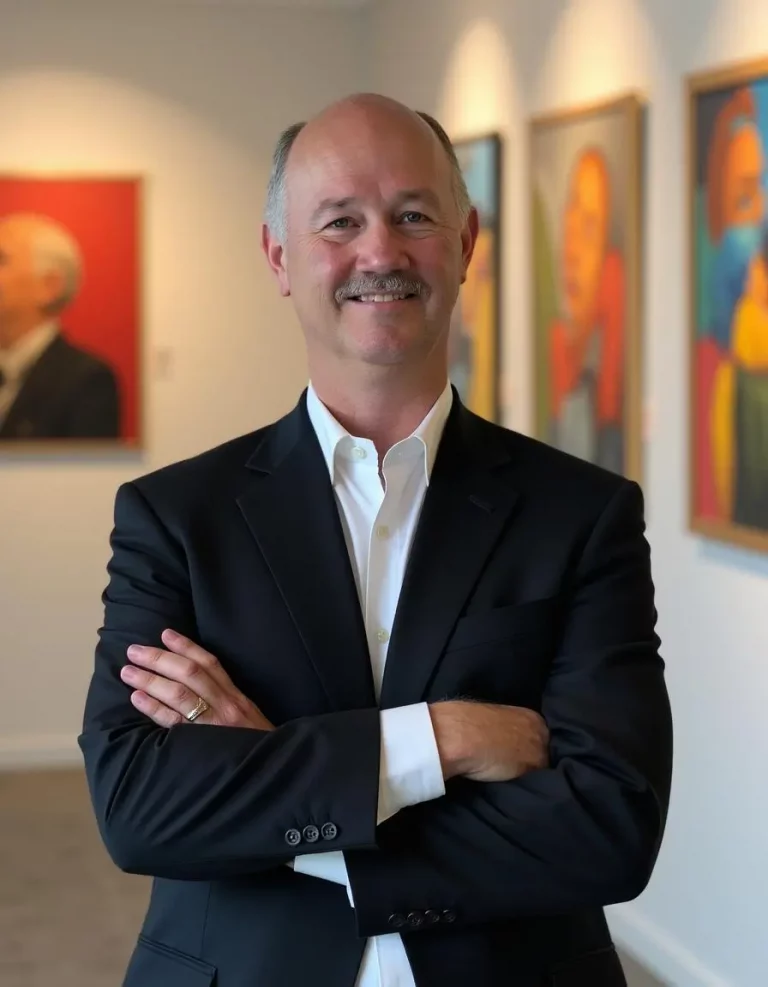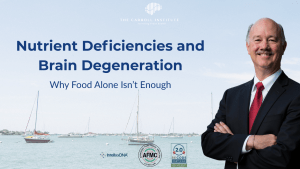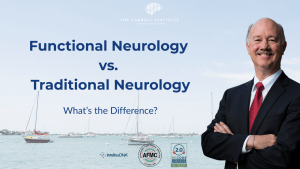Why Isn’t There an Effective Drug for Alzheimer’s Disease?
Last Updated: October 2025
- There is no effective drug for Alzheimer’s because the disease has over 40 known causes — not just one.
- Each person’s cognitive decline is unique, so no single medication can fix them all.
- Decades of research focused on the amyloid plaque theory, but recent investigations uncovered widespread data manipulation that misled drug development.
- At The Carroll Institute in Sarasota, FL, we help patients improve cognition by addressing root causes through the Bredesen ReCODE protocol and functional neurology.
- Drugs may not cure Alzheimer’s, but personalized, root-cause care can lead to real recovery.
The Short Answer: Alzheimer’s Is Not a Single Disease
For decades, researchers have searched for a “magic bullet” drug for Alzheimer’s. However, science now understands that Alzheimer’s isn’t one disease — it’s a syndrome with many different causes.
Just like a fever can result from dozens of different infections, Alzheimer’s symptoms — memory loss, confusion, and cognitive decline — can come from many different biological problems.
- Chronic inflammation
- Insulin resistance (“type 3 diabetes”)
- Hormone decline
- Nutrient deficiencies
- Toxin and mold exposure
- Sleep disruption
- Chronic infections
- Head trauma
- Reduced blood flow to the brain
Because every patient’s mix of causes is unique, there cannot be one drug that fixes them all.
While many new drugs target symptoms, the ReCODE Protocol targets root causes — inflammation, toxins, and metabolic imbalances.
Why Single-Target Drugs Keep Failing
Traditional drug development follows a “one target, one drug” model — trying to block or boost a single molecule in the brain. For Alzheimer’s, the target for decades has been amyloid beta, a sticky protein that forms plaques in brain tissue.
However, this narrow focus has failed repeatedly. Over 99% of Alzheimer’s drug trials have shown no meaningful benefit. Why? Because amyloid buildup is a result, not the cause of the problem. It’s the brain’s reaction to stress from inflammation, toxins, and metabolic dysfunction — not the original driver of decline.
When we target amyloid alone, we’re trying to sweep up the smoke while ignoring the fire.
The 2025 Alzheimer’s Research Fraud: What Really Happened
In 2025, several independent investigations revealed that some of the most influential Alzheimer’s research from the early 2000s contained manipulated and falsified data. According to reports in The Lancet, Stanford Neuroscience News, and the publication Doctored: Fraud, Arrogance, and Tragedy in the Quest to Cure Alzheimer’s, key research images were altered to support the idea that amyloid plaques caused memory loss.
As a result, billions of dollars were invested into drugs designed to remove amyloid plaques. While some drugs did remove amyloid, patients’ cognition did not improve. These findings show how decades of Alzheimer’s drug research were built on flawed science — and why medications continue to fall short.
The Bigger Problem: Treating Symptoms Instead of Causes
Western medicine is excellent at managing symptoms but often fails to address the root causes. In Alzheimer’s care, this has meant decades of drugs that change brain chemistry temporarily but do nothing to fix the underlying damage caused by inflammation, insulin resistance, or toxicity.
At The Carroll Institute, we believe this is the fundamental flaw: you cannot cure a complex, metabolic, and inflammatory condition with a single pill.
What the Science Now Shows
Modern neuroscience confirms that cognitive decline is driven by multiple biological imbalances. Studies in Neurotherapeutics, Frontiers in Aging Neuroscience, and Journal of Alzheimer’s Disease support this multi-factorial view. That’s why the Bredesen ReCODE protocol has shown success — it identifies and corrects each person’s specific causes rather than chasing a single molecular target.
- Reducing inflammation through diet and lifestyle
- Balancing blood sugar and insulin
- Optimizing hormones and sleep
- Detoxifying the body from metals, mold, and chemicals
- Correcting nutrient deficiencies
- Enhancing blood flow and oxygenation through functional neurology
When these systems are balanced, the brain can heal — and cognitive improvement becomes possible.
To understand why conventional care lags behind, read Why Doesn’t My Doctor Know About This?
What to Do If Alzheimer’s Drugs Haven’t Worked for You
If you or a loved one has tried medications like donepezil (Aricept), memantine (Namenda), or lecanemab (Leqembi) without success, you’re not alone. These drugs may briefly modify neurotransmitters but rarely address the underlying metabolic or inflammatory issues that cause decline.
At The Carroll Institute, we specialize in helping patients who have already tried standard treatments and want a more effective, root-cause approach. We begin with advanced lab testing to identify the drivers of decline — inflammation, hormones, insulin resistance, toxins, and more — and then create a customized plan that includes:
- Targeted nutrition and supplementation
- Hormone and insulin optimization
- Detoxification and gut repair
- Functional neurology exercises for neuroplasticity
- Cognitive retraining and oxygen-based brain therapy
Even if you’ve been told “nothing more can be done,” uncovering and correcting these factors can lead to measurable gains in clarity, memory, and function.
The Carroll Institute’s Approach: Restoring Hope Through Root-Cause Care
Our clinic follows the Bredesen ReCODE protocol — a precision medicine approach that tailors every treatment plan to the individual. By combining functional medicine with functional neurology, we target both the metabolic and neural drivers of Alzheimer’s, helping patients rebuild lost connections and cognitive capacity.
While there may never be a single “drug cure,” we routinely see patients regain memory, focus, and emotional stability once their root causes are addressed.
Why This Matters
The Alzheimer’s research fraud was more than a scandal — it was a warning. It proved that chasing one oversimplified theory leads to decades of wasted time and suffering. The future of Alzheimer’s care lies in identifying and reversing the underlying mechanisms unique to each person.
At The Carroll Institute, we’re not waiting for a pill. We’re helping patients take charge of their brain health now — by correcting the causes no drug can reach.
Related Reading
Book a Discovery Call to learn about non-drug-based approaches to cognitive decline.
Sources
- Why New Alzheimer’s Drugs May Not Work for Patients – Stanford Neuroscience News
- Doctored: Fraud, Arrogance, and Tragedy in the Quest to Cure Alzheimer’s – PMC
- Fraud, Arrogance, and Tragedy: The Case of Doctored – The Lancet Neurology
- Reversal of Cognitive Decline: A Novel Therapeutic Program
- Precision Medicine Approach to Alzheimer’s Disease: Rationale and Implications
- Rationale for a Multi-Factorial Approach for the Reversal of Cognitive Decline
- Sustained Cognitive Improvement in Alzheimer’s Disease Patients Following a Precision Medicine Protocol
Medically reviewed by Dr. Garland Glenn, DC, PhD, IFM, AFMC
Last Updated: October 2025
The Carroll Institute — serving patients in Sarasota, FL
Learn about our ReCODE Program | About Dr. Glenn | Book a Discovery Call
This content is for educational purposes only and does not substitute for personalized medical advice.

Dr. Garland Glenn, DC, PhD, IFM, AFMC
Founder & Clinical Director, The Carroll Institute — Sarasota, FL
Dr. Garland Glenn is a board-certified chiropractic physician and functional medicine practitioner specializing in cognitive health, neurodegeneration, and root-cause medicine. Certified as an AFMC (Advanced Functional Medicine Clinician) and Institute for Functional Medicine (IFM) trained, he has also completed over 500 hours of advanced training in Functional Neurology under Dr. Ted Carrick, founder of the Carrick Institute.
At The Carroll Institute, Dr. Glenn leads Sarasota’s only ReCODE-certified Functional Neurology program, helping patients reverse or prevent cognitive decline through the Bredesen ReCODE Protocol, neuroplasticity exercises, and personalized functional medicine care.
Learn more about his background and approach at About Dr. Garland Glenn.
– schedule now –
free discovery call
To help you get started, we offer a free 20-minute Discovery Phone Consultation. During this call, you will be able to talk with one of our Certified Brain Health Coaches about what going on with you or your loved one and find out if we can help. Please review our FAQs prior to scheduling your free call. We look forward to talking with you soon and helping you Save Your Brain.
(yes, it’s totally free!)
ReCODE® is a registered program developed by Dr. Dale Bredesen and licensed through Apollo Health. Dr. Garland Glenn is a certified ReCODE practitioner.



